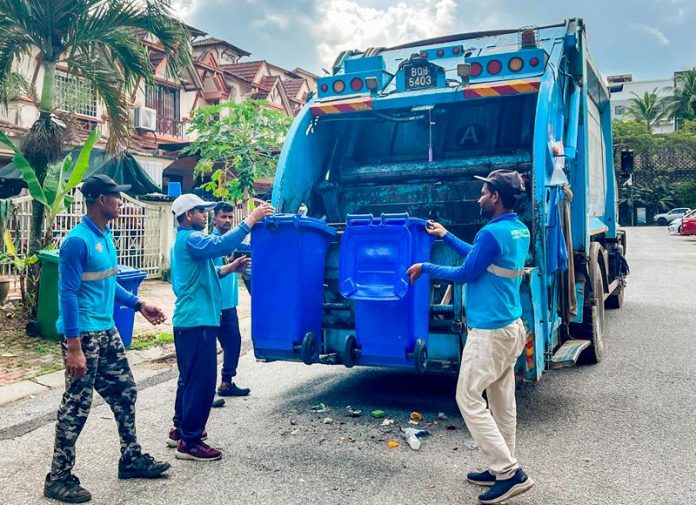PETALING JAYA: Dirty, dangerous, and difficult (3D) jobs are essential to Malaysia’s economy, yet they remain undervalued and overlooked, raising concerns about workforce sustainability.
Universiti Malaysia Kelantan Professor of Human Resource and Industrial Relations Prof Dr Balakrishnan Parasuraman said these roles are often perceived as undesirable due to the stigma surrounding them, which includes their demanding nature and low social status.
He said despite the government’s planned minimum wage increase to RM1,700 on Feb 1, Malaysians still remain reluctant to take up these positions, leading to a shortage of local workers.
“3D jobs, such as construction work, waste management, and agricultural labour are perceived as unappealing and ‘unsustainable’ career options.
“This perception not only discourages local participation but also negatively impacts workers’ morale, further affecting the economy.
“While some employers offer benefits packages to attract workers, these efforts fail to address deeper challenges, such as the physical and emotional toll these roles impose on employees,” he said.
Balakrishnan emphasised the need for comprehensive support systems, as the demanding nature of these roles can significantly impact workers’ mental health.
“Employers and the government must implement continuous and comprehensive training programmes to promote emotional stability and enhance staff well-being.”
He also suggested rebranding the term “3D jobs” to eliminate negative connotations associated with terms like “dirty”, “dangerous”, and “difficult”, which discourage potential workers.
“Changing the terminology and rebranding these roles can reshape public perception, making them more appealing to the local workforce.
“The integration of related subjects into school curricula along with technical and vocational education and training programmes, is crucial. Competitive salary packages, insurance coverage, and other benefits must also be prioritised to attract more locals to these sectors,” he said.
Muhammad Shawal Rusydi Hendri, 25, a rigger scaffolder from Kuala Lumpur said that his job is both physically and mentally taxing.
“I have been working as a rigger scaffolder for over five years. The work is gruelling and exhausting, and sometimes the workload makes us feel like giving up. But my colleagues and I stay focused on our goals, and the pay for this job is quite rewarding.
“Being a rigger scaffolder means spending most of my time high up on construction sites. Mentally and physically, I have to stay strong,” he said.
Shawal also said public perception of his job can sometimes be discouraging.
“People often look down on us, comparing our work to monkeys climbing or cattle labouring.
“Even so, I remind myself that my work is meaningful and fulfilling, and I genuinely enjoy it. Without us, industries like oil and gas or construction couldn’t function,” he said.
Mizanur Karim, 34, a garbage collector from Bangladesh, said his job is often met with disdain.
“Even back home, this kind of work is not well sought after. Here, when my colleagues and I come by with the garbage truck, we’re sometimes shunned because of the smell or the nature of our job.”
Mizanur said he starts his day early, ensuring the streets remain clean by handling heavy bins, enduring unpleasant odours, and navigating traffic to transport waste to disposal sites. Initially, the nature of the work and the smell bothered him, but he has since shifted his mindset.
“Without us, the streets would be overrun with garbage, and the environment would suffer. People may not always see it, but we play an important role in making the city livable. Even though the pay is small, I’m willing to do this because it helps me support myself and send money back home,” Mizanur said.








